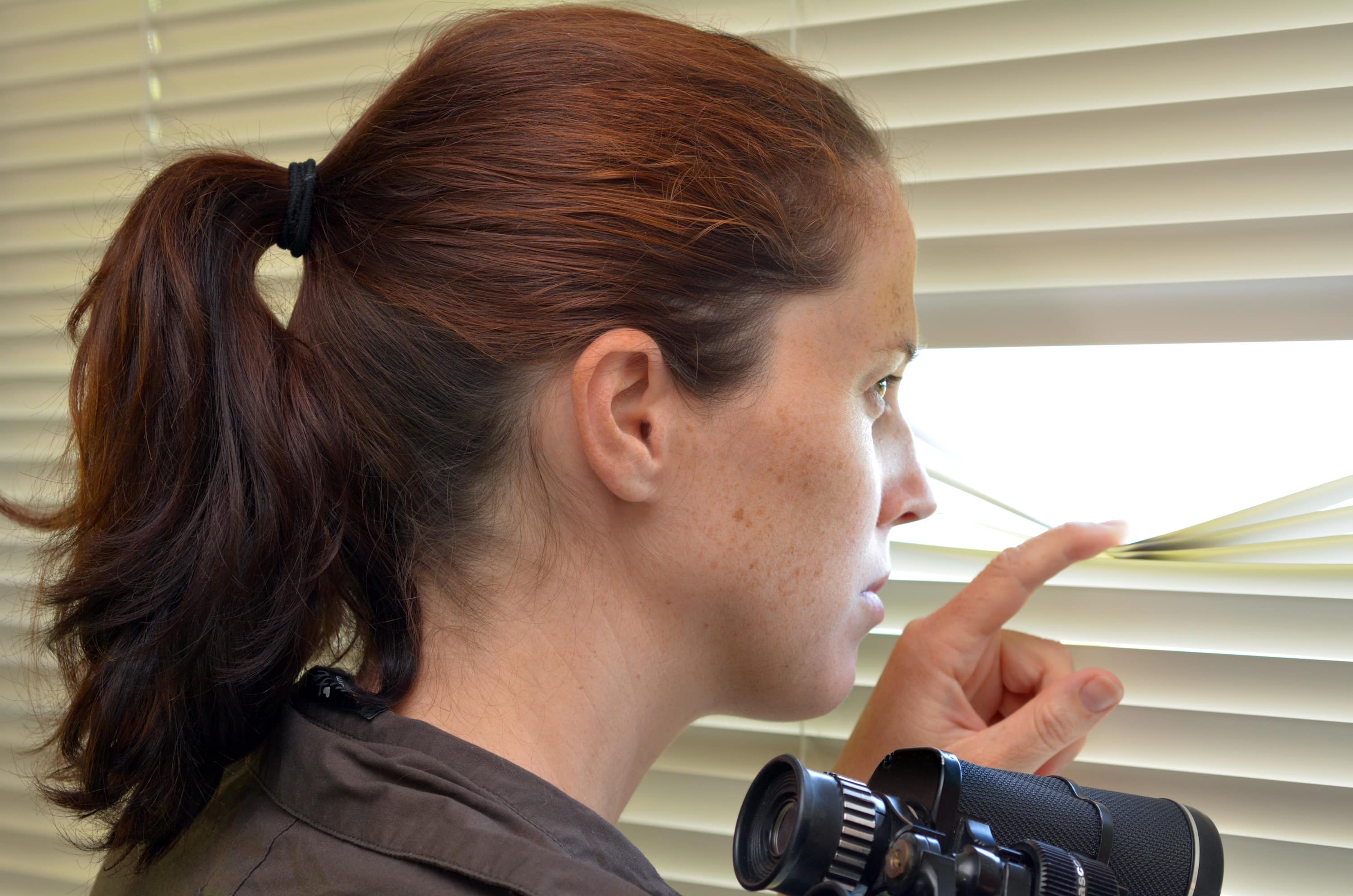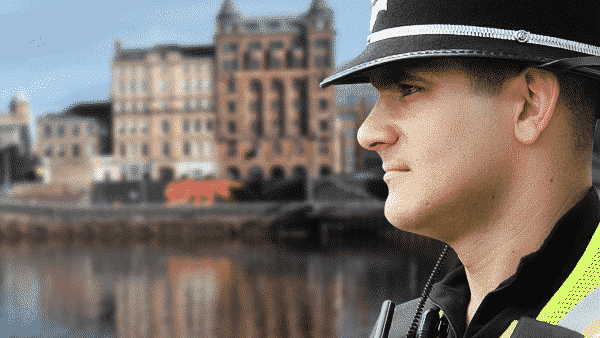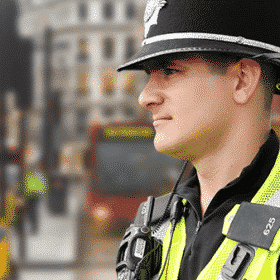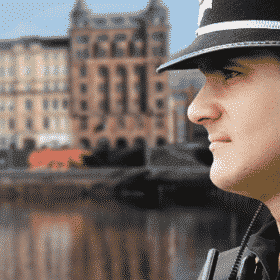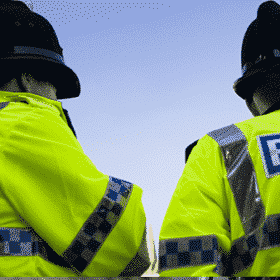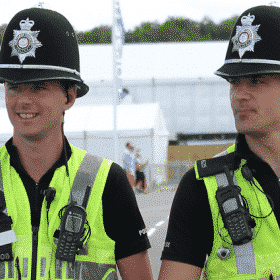The first competency on the list is emotional awareness. Emotional awareness is extremely important for Detective Constables, and indeed for any police employee. As a member of the police force, it’s crucial that you can learn to understand the needs and feelings of your colleagues, and your own emotions. Part of doing this is your ability to listen to others, making a genuine attempt to empathise with them and appreciate their viewpoint.
Emotional awareness also means that you are able to control your own emotions when under stress. It’s important that police officers can remain calm under pressure, as this will impact upon your decision making, and your conduct. Communicating with colleagues in a calm, polite and respectful fashion is vital to your ability to do the job.
A person with emotional awareness can:
- Empathise with their colleagues, taking into account the views of others when making decisions.
- Understand and appreciate the reasoning behind other people’s views and opinions.
- Manage their own emotions when under pressure.
- Promote the benefits and value of diversity.
- See situations from a variety of different perspectives.
Positive drive is all about being the change that you want to see. It’s about being a force for positive development within the police, and motivating others to improve their own working practice. You must take a positive and enthusiastic attitude to your work, keeping other colleague’s spirits up. As a leader, you must be decisive and proactive, showing a confident and assertive attitude. It’s extremely important that every single employee of the police is capable of adapting to new working methods, and constantly improving. Criminals are becoming more and more intelligent in their attempts to evade the law. The use of modern technology has aided criminals in this regard, but it can also aid the police. Using the most up-to-date methods, you will be responsible for tracking down and detaining criminals.
As a Detective Constable, you will be placed in a leadership position within the police force. This means that it is your responsibility to motivate the members of your policing team, and to encourage them to improve and perform the best possible police work at all times.
Along with motivating others, it’s also important that you have the drive to succeed The police are looking for individuals who are driven by the idea of perfection, working to the highest possible standards, and safeguarding the public.
A person with positive drive can:
- Understand the need for constant improvement when working in the police.
- Motivate and manage others to improve their own working practice.
- Exercise self-management techniques, to get the most out of themselves.
- Understand their own limitations, and identify areas for self-improvement.
- Give 100% of their effort to the police work, on every single shift.
- Believe wholeheartedly in the values and priorities of the police.
Resilience is an extremely important quality for Detective Constables to have. Working in the police is an exciting and hugely rewarding career, but it is also extremely challenging and can push you to your limits. In order to succeed, you’ll need to be a resilient person. You must be able to face challenges and hardships with an open mind and a calm approach. Obviously, the police do not expect you to be a robot – they know that their employees are human beings and that some of the things you’ll experience when working will have an emotional impact. However, it’s imperative that the police know you can handle this. They don’t want to hire someone, only to have them drop out a few weeks later because they can’t deal with the difficult aspects of the role. So, with this in mind, it’s important that you are resilient.
Being resilient doesn’t just apply to the more difficult elements of the role. It’s not just about being able to handle hardships, but it also relates to how persistent you are as a whole. If you are a Detective Constable, then you will be placed in a leadership role. You must be able to cope under pressure, taking decisions for the good of the team, and not folding in the face of disagreement. Also remember that there is a fine line between being resilient and being stubborn. If you want to be a successful Detective Constable, then you’ll need to find the right balance.
A person with resilience can:
- Maintain a positive mindset, even when faced with hardships and difficulties.
- Deal with pressure in a calm and logical fashion.
- Provide leadership and motivation for their colleagues and teammates.
- Remain determined and committed to great police work, even in the face of difficulty.
Teamwork is extremely important when working in the police. Your ability to work in synchronisation with your colleagues, to create an effective and organised policing unit, will be paramount to the success of the force. The better police staff can work together, the stronger the level of care that you can provide to the public. Policing is not a one-person job. It takes the combined efforts of the entirety of the police to fight crime successfully. As a Detective Constable, you will need to call on the help of many other specialists working within the police, and in outside agencies, so it’s essential that your teamworking skills are top notch. You’ll also be a leader, required to manage teams, so it’s vital that you have an understanding of how to work with others.
A person with team working skills can:
- Develop good professional and personal relationships with colleagues.
- Participate in group activities and team-based exercises, playing an important role in these endeavours.
- Take the views and opinions of others into account, and is prepared to discuss the views of others in a polite and amicable fashion.
- Utilise an open, honest and supportive approach when assisting other colleagues.
- Accept that not all tasks need to be completed solo, and ask for help when appropriate.
Communication is incredibly important when working in the police, and therefore it is essential that candidates for Direct Entry can demonstrate an ability to put across their ideas in a clear and concise manner, in both written form and verbal. Working in the police will put you in contact with a wide variety of people, from different backgrounds, and therefore it’s vital that you can communicate effectively. Not only will you utilise your communication skills when dealing with members of the public, and with your own team, but you will also need to communicate with different members of the law enforcement team, and professionals from outside of the police – such as social workers or lawyers. You may also be asked to appear in court, where you will need to communicate verbally. Alternatively, your written reports could be used in court as evidence. These are just some of the many reasons that communication is essential for Detective Constables.
A person with good communication can:
- Communicate effectively, in writing and verbally.
- Identify when it is appropriate to use certain styles of communication and language.
- Adapt their communication according to the individual(s) being addressed.
- Use grammar, spelling and punctuation effectively and correctly.
- Listen carefully when they are being spoken to, taking note of essential information.
- Influence the behaviour of others, in a positive way, using good communication.
As a Detective Constable, it’s imperative that you can take a professional approach to your work. The police are role models in society. They need to set an example, and this is especially true for high ranking officers – such as Detective Constables. The public look to the police for guidance and reassurance, and you can only provide this to them, and build up a level of trust, by acting with the utmost professionalism.
You might be familiar with the term integrity. A Detective Constable with integrity is someone who can act with decency, honesty and kindness, whilst still upholding the values and beliefs of the police service. Your professional standards are incredibly important, and you must be able to uphold these.
Taking a professional approach isn’t just limited to being a decent and professional person. It also means that you take a professional approach to everyday tasks too. It means giving 100% to every single task, dedicating yourself to police work, and working hard to ensure that you stay in top physical condition.
A person who takes a professional approach can:
- Act with integrity at all times, both when working and when off duty.
- Uphold the police professional standards.
- Behave in a way that is fitting of a Detective Constable, showing honesty and decency.
- Be held up as an exemplary role model for how officers and members of the public should conduct themselves.
- Work hard to ensure that they stay in good physical and mental condition.
Naturally, this is one of the core skills for any Detective Constable. The clue being in the name – detective! Having an investigative mind means that you are someone who can think analytically about your work, deciding on factors such as investigation planning and how the investigative process will be carried out. Since you are a Detective Constable, this will form one of the key parts of your role, so it’s crucial that you can lead these initiatives. Furthermore, you’ll also be involved in improving the way that future investigations are conducted, through using self-evaluation and team evaluation to determine what worked well, and what didn’t.
At all times, you will need to think logically but creatively, coming up with alternative solutions or methods where others have failed, whilst still maintaining the highest possible standards.
Remember too, that you also need to be open to the views of your colleagues. Just because you are a Detective Constable, it doesn’t mean you have to come up with all of the ideas by yourself. You will find that the views and opinions of your colleagues are extremely useful, and could lead you to pursuing methods that work out well.
A person with an investigative mind can:
- Take an analytical approach to investigations.
- Take ownership of decisions relating to investigations.
- Play a significant role in the planning of investigations.
- Seek feedback and evaluate the strengths and weaknesses of different investigative approaches.
- Consult with colleagues to ask for advice, opinions and feedback.
No matter what rank you are in the police service, you will always be learning from your experiences. It’s essential that Detective Constables can learn and grow from each and every investigation. Every single person, in every walk of life, makes mistakes. Whether these are major or minor, it’s important that you can learn from these mistakes and improve for the next time. Whilst your initial training will prepare you for the role, at the end of the day it can’t prepare you for every single eventuality, and therefore you need to be able to think on your feet and develop strategies for dealing with unexpected scenarios. This is not an easy role. Working as a Detective Constable will require you to give 100% of yourself every single day. If you aren’t learning from your experiences, then you will have a big problem, because improvement is a key part of doing this job successfully.
Learning also applies to your attitude. In order to work for the police, you must be someone who can take a positive and enthusiastic approach towards learning. The police are looking for candidates who are eager to improve and better themselves. Not only should you be looking to learn from others, but you also must be able to take initiative for your own learning and improvement.
A person with good learning skills can:
- Learn from their mistakes, and improve their practice for future investigations.
- Take initiative for their own learning and improvement.
- Demonstrate an enthusiastic and committed attitude towards learning.
- Seek feedback from others on their development.
- Accept that mistakes happen, not just to you but to others as well.


